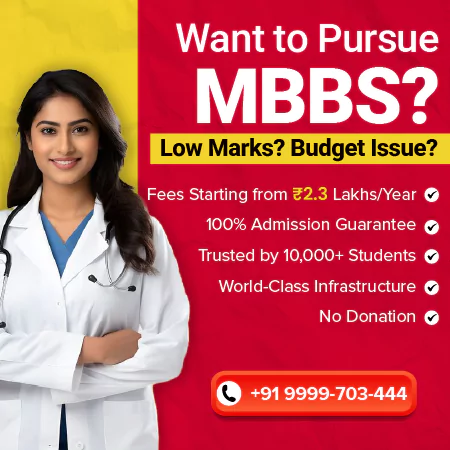NEW DELHI: On Friday, the Supreme Court (SC) condemned the National Medical Commission’s (NMC) rule that requires candidates to have the “Both Hands Intact” for medical education. The court called this rule an act of “ableism” and said it goes against the principles of fairness and inclusivity enshrined in the Constitution of India. It urged the NMC to create policies that provide equal opportunities for all students.
Justices B.R. Gavai and K.V. Viswanathan ruled that the ‘both hands intact’ requirement under the rules is against the Constitution. The Graduate Medical Education (Amendment) Regulations, framed in 2019, set conditions for medical admissions and define specific criteria for candidates with “Specified Disabilities.”
The court said this rule takes away constitutional rights and including it in the Rights of Persons With Disability (RPWD) Act makes a mockery of fair accommodation.
| NEET UG Counselling Guide 2025 | |
|---|---|
| State-wise MBBS/BDS Counselling Guide eBook 2025 | 📥 Download |
| MCC NEET UG Counselling Guide eBook 2025 | 📥 Download |
| AACCC AYUSH NEET Counselling Guide eBook 2025 | 📥 Download |
Both Hands Intact Rule
The guidelines for selecting students in MBBS courses with “Specified Disabilities” are listed in Appendix H-1 of the 2019 Graduate Medical Education Regulations (Amendment). It states one of the conditions – “candidates must have “both hands intact, with intact sensations, sufficient strength, and range of motion“.
Students with less than 40% disability benchmark are debarred from medical education in India. SC’s decision was based on earlier judgment on the case of a NEET UG 2014 passed student, Anmol. He was denied a seat in medical college by NMC.
The Supreme Court bench said, “In this time when robotic surgery is becoming the norm, the ‘Both Hands Intact‘ rule is arbitrary and absurd”. The National Medical Council (NMC) will have to change this rule. Our Constitution under Article 41 directs the State to make available equal access to education for all.


